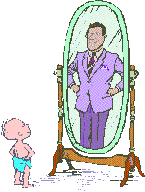There are many types of personality. These fit into categories and sub-categories:
The Protectors (SJ):
- ESTJ (overseer) - traditional, practical, organised, loyal, hard-working, like to be in charge.
- ESFJ (supporter) - conscientious, popular, puts needs of others above own, strong sense of duty.
- ISTJ (examiner) - thorough, dependable, responsible, tend to be quiet and serious.
- ISFJ (defender) - quiet, conscientious, kind, stable, practical, perceptive of other’s feelings.
- ESTP (persuader) - adaptable, friendly, impatient, risk-takers, loyal, great people skills.
- ESFP (entertainer) - people-oriented, well developed common sense and practical ability.
- ISTP (craftsman) - reserved, quiet, interested in how things work, detached, analytical.
- ISFP (artist) - sensitive, serious, kind, quiet, loyal, faithful, flexible, open-minded, original, creative.
- ENTJ (chief) - outspoken, assertive, intelligent, well-informed, value competence and knowledge.
- ENTP (originator) - resourceful, intellectual, creative, outspoken, assertive, logical.
- INTJ (strategist) - determined, original, analytical, independent, natural at leading.
- INTP (engineer) - creative thinkers, logical, original, individualistic, value knowledge and competence.
- ENFJ (mentor) - sensitive, popular, people skills, focused, places needs of others above own.
- ENFP (advocate) - creative, enthusiastic, idealistic, great people skills, open-minded and flexible.
- INFJ (confidant) - original, sensitive, forceful, intuitive about people, individualistic.
- INFP (dreamer) - interested in serving humanity, reserved, quiet, loyal, adaptable, laid-back.
ID - Primitive or instinctual needs for which an individual seeks immediate satisfaction.
Superego - Individual's internal expression of society's moral and ethical codes of conduct.
Ego - Individual's conscious control that balances the demands of the ID and Superego.
By using Freud's personality theory researchers view consumer purchases as an extension and reflection of a consumer's personality. The ID is the largest factor in Freud's theory and so companies can use this to market their product effectively. Freud's theory explains the reasons why sex sells. It is primitive and instinctual and seeing it with a product sends signals to your unconcious mind that you want that product. If you buy that product you will look like or attract the type of person selling it. Lynx is a brilliant example of this. Their campaign is simple - buy our products and you will have women chasing you down.
Self-concept is the way one perceives and defines oneself.
The self-concept is an internal model which comprises of various features that will lead to a final assessment of oneself. Features include: personality, skills and abilities, occupations and hobbies, physical characteristics, etc.
The most important element of self-concept that those in marketing need to know is that self-concept is not restricted to the present. Individuals look at both their past selves and their future selves. Companies can use an individual's idea of their future self to market a product. Future selves represent someone's idea of what they would like to become, what they might become and what they are afraid of becoming. This makes them correspond to fears, hopes, goals, standards and threats. Future behaviour is based on an individual's idea of their future selves. For example, it is a well-known fact that a vast majority of women do not want to age. When thinking about their future selves they might see an eighty year old woman instead of a sixty year old woman - they are afraid of becoming old. Cue a large amount of skin products "scientifically proving" to reduce the signs of aging priced at an extortionate level. No matter how over-priced they are there is a very high demand for products like these because it's an issue at the forefront of pretty much every thirty year old woman's mind.
This is important in marketing as the company must decide how best to reach the target audience. Do the target audience envision themselves as someone else? There are plenty of thirty year old women who perceive themselves to still be eighteen. There are also plenty of eighteen year olds who live the lives of thirty year olds. When choosing how to market a product a company must bear in mind these factors.



No comments:
Post a Comment